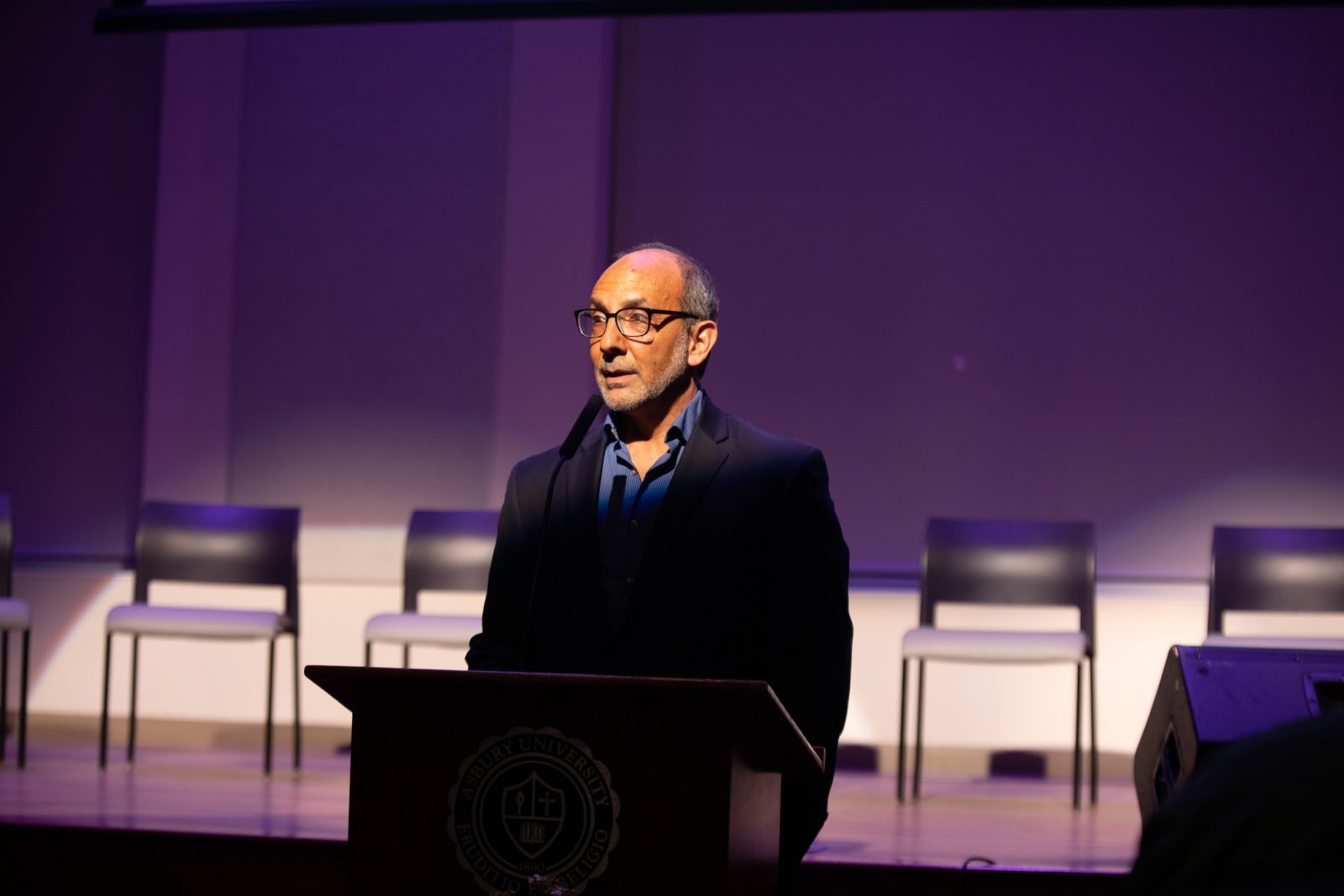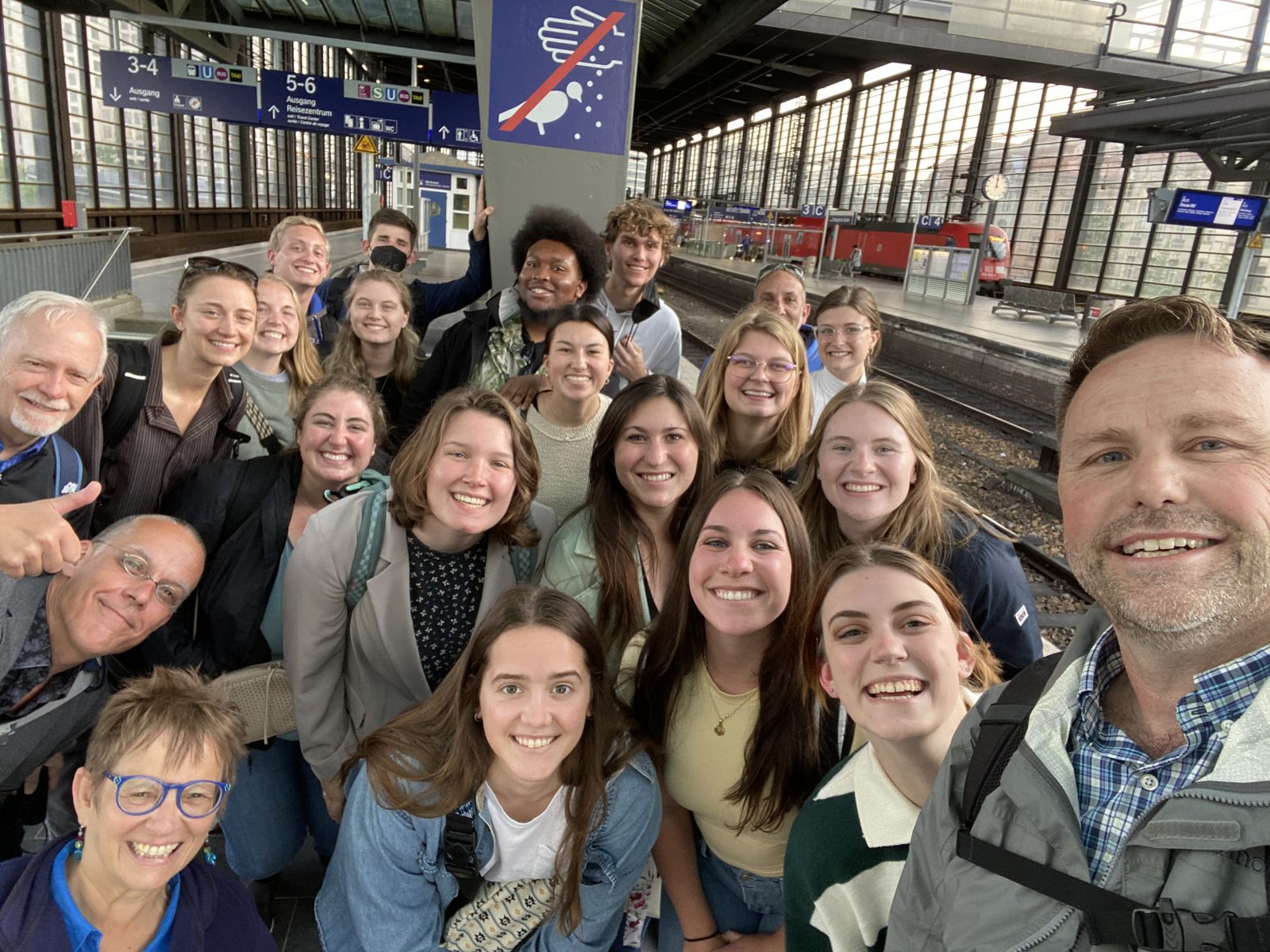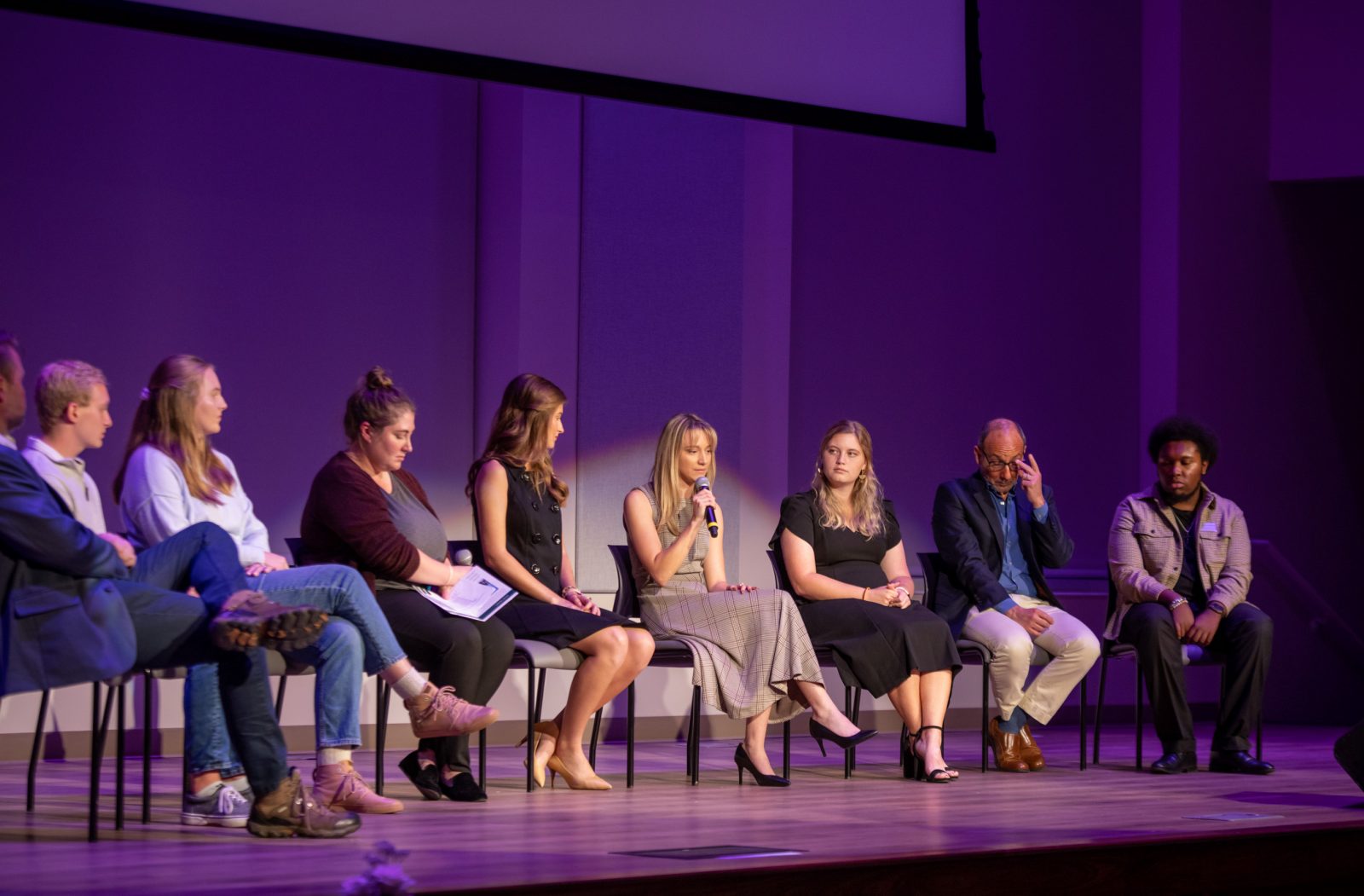
On Wednesday evening, October 26th, nearly 350 students and community members crowded into the new CLC auditorium to view the first Asbury-student directed and shot documentary, Don’t Forget Us. The evening featured the 42 minute film followed by two panel discussions. The film project was the idea of Journalism professor, Rich Manieri, who traveled with his team of students to Germany and Poland to provide oversight for the project, also helping to write of the script. Here is a link to most of the events of the evening, including the documentary and the panel discussions: https://www.youtube.com/watch?v=i-Z9ZthcOao. Prof. Manieri plans to enter the project into several film festivals for competition.
The video feed cut out just prior to a closing statement I was asked to give to provide a broader context and to close the evening. Since several people commented that it was a helpful way to end the evening given the nature of the documentary, I will present it here:
“In closing, I want to thank each of you for making yourself available to learn a bit more about the Holocaust and to see for yourself what some of your fellow students have experienced. I would invite you to continue to bring yourselves closer to this terrible story. We do ourselves no favors when we decide that this is just an historical event and we choose to hold it at arm’s length thinking that it has no relevance to us and how we live our lives here and now. For these people, the victims, bystanders, and YES, even the perpetrators were just like us, human to the core. And the evil found at the core of this story, though unprecedented in scale and novel in terms of the inventive mechanisms used, reflects the evil that permeates every human heart. That we are prone to blame others and to fear others, and then to marginalize others, then to dehumanize others, and finally, if given the opportunity, to eliminate others in various ways, is still very much apart of the human experience. The holocaust captured the stable and perennial human pension to abuse others, expressed it through more effective and more permanent means, and then brought it up to an industrial scale. The political and social conditions were favorable for mass production, we might say. In other words, the holocaust captures our attention because it shows us distilled human evil, not a different type of human evil. And because this story is much more about quantity than quality, none of us can escape its implications for who we are and what we are capable of.

I realize that this is not an easy message for us to hear, we want to maximize the distance between the bystanders and the perpetrators and us. The bystanders were cowards, not courageous like us. And the perpetrators were evil and delighted in doing evil; we on the other hand are good, albeit not perfect, but all-in-all pretty decent people. Well, I would suggest that the bystanders and the perpetrators might have said the same exact thing about themselves. A vast majority of them believed that what they were doing or not doing was the right thing to do or not do. And that fact should give us all reason to pause.
I hope that as you leave this evening you consider carefully the claim that I’m making. But I would also want you to leave here with a sense of hope for the human condition. On our trip we learn about rescuers and helpers. As my friend and holocaust survivor Pierre Sauvage helped me to understand this past week, when we look into the abyss of human evil, there is, in fact, a banister of hope we can hold on to – the stories of those who helped and of those who faithfully resisted. And as Christians, we have the added benefit of realizing that God himself did not remain distant from human evil and suffering, but took on human form, willingly, and was then subjected to human evil. If the Christian story be true, the creator of the universe entered into our story, and though innocent He experienced injustice and suffered, and He was then killed. Might this mean He can be trusted with our questions, our anger, and our sense of despair?
Thank you for coming, for not looking away, but rather choosing to look into the abyss through the eyes of your fellow students. I am firmly convinced that the holocaust has much to teach us, if only we will allow it to do so. You, by coming, did allow it to do so. So, once again, thank you.”
(A low-quality video clip of the closing statement has recently been found. It is here: https://testliveasbury.sharepoint.com/sites/AsburyMarCom/_layouts/15/stream.aspx?id=%2Fsites%2FAsburyMarCom%2FShared%20Documents%2FAssets%20%2D%20Photos%20by%20Event%2F2022%2D23%2F2022%2D10%2D26%20Don%27t%20Forget%20Us%20Documentary%20Premiere%2FDon%27t%20Forget%20Us%20Premiere%20Closing%2EMOV&ga=1)
The tour for 2023 will run from May 8 – May 22. Non-student adults are welcome to apply. The cost is $2,500 plus flights and some meals. Please reach out to either myself through the contact feature of this website (or at [email protected]) or Ashley DeMichael, Asbury’s Director of Global Programs and Initiatives ([email protected]). I expect to have room for 4 – 6 non-student adults.
